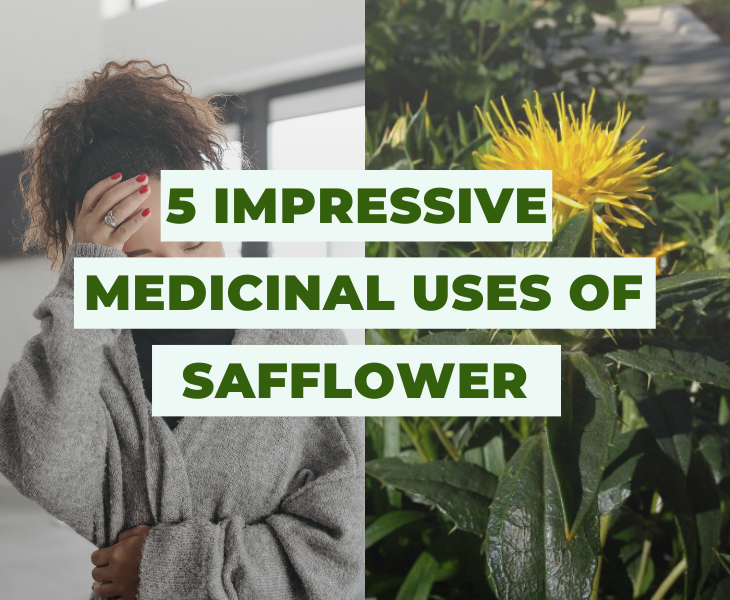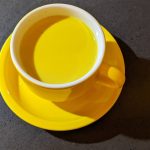Safflower is an annual shrub that grows from 2 to 3 feet high. Its flowers are orange-yellow in its flower head. The seeds of safflower produce oil for culinary purposes. Today, let’s talk about the medicinal uses of safflower and ways to use it at home.
Table of Contents
Safflowers flower and the oil extracted from the seeds have medicinal applications.

Atherosclerosis (also known as “hardening of the arteries”) and stroke are two of the many cardiovascular diseases that safflower seed oil is used to ward off.
It’s also used to alleviate symptoms of trauma, heart disease, and lung disorders including asthma and bronchitis. It is used by some as a laxative, stimulant, antiperspirant, and expectorant (to break up mucus in the lungs).
Some women use safflower oil to induce abortions or treat painful or irregular menstruation cycles. Safflower seed oil is commonly used in the food industry as a healthy alternative to other oils.
The safflower flower is used as a dye in the textile and cosmetic industries. Safflower oil is a popular medium for painting.
What’s the deal and how does it work?
The safflower seed oil contains linolenic and linoleic acids, both of which may help prevent the “hardening of the arteries,” lower cholesterol levels and lessen the chance of developing heart disease. Safflower includes compounds that may prevent blood clots, dilate blood vessels, reduce blood pressure, and stimulate the heart.
Medicinal Uses of Safflower
- It helps promote urine flow.
- Used as a laxative.
- It is used to heal measles, fever, and eruptive skin diseases.
- To soothe hysteria.
- Helps to cure colds and coughs.
How to Use Safflower in Home Treatment
- The flowers are used for children’s complaints like measles, fever and eruptive skin disease.
- Taken hot, the tea made from flower petals is recommended for colds, coughs, and similar ailments. It is also beneficial in restoring menstrual problems and sometimes, used to soothe hysteria.
The flowers of the Safflower are the part used for medicinal or herbal purposes.
Recommended Dose:
20 to 30 grams for 1 litre of water. 2 or 3 cups are to be taken in a day.
 Facts about Safflower
Facts about Safflower
- The world’s largest safflower crop is grown in India, with California and Mexico close behind.
- Safflower is grown commercially in North and South Dakota, Montana, Colorado, Idaho, Nebraska, and Arizona.
Precautions:
- Safflower leads to menstruation so pregnant women should avoid it.
- Safflower could slow the clotting of blood.
- Those who are sensitive might get allergic reactions.
- This plant might be harmful to diabetic patients because the oil of safflower raises the blog sugar.
- Safflower slows down blood clotting which could raise the chances of bleeding after and during surgery.
- People who have scheduled surgery should stop using Safflower before two weeks.
Disclaimer: This is only an informative blog. Always consult an expert before using this plant as medicine.
You might also like:



 Facts about Safflower
Facts about Safflower





1 thought on “5 Impressive Medicinal Uses of Safflower That May Surprise You”